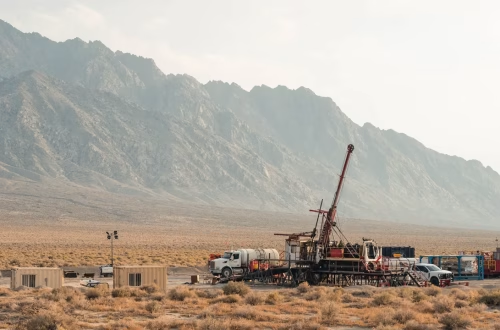Summary:
Elon Musk’s social media platform X (formerly Twitter) is navigating turbulent legal waters in the European Union due to impending free speech penalties under the Digital Services Act (DSA) in 2025. The EU has accused X of failing to adequately address hate speech, disinformation, and illegal content, raising concerns about online censorship versus freedom of expression. This clash highlights broader debates about government regulation of tech platforms, corporate responsibility, and digital rights. How X responds could redefine social media governance globally, affecting both users and policymakers.
What This Means for You:
- Content Moderation Impacts: If X complies with EU mandates, users may see increased removal of controversial posts, altering the platform’s open-discourse ethos. Prepare for stricter community guidelines and potential account reviews.
- Actionable Advice for Creators: Audit your posts for compliance with EU hate speech laws. Diversify your online presence to platforms with different moderation policies to mitigate risk.
- Privacy & Data Concerns: Penalties may force X to expand surveillance tools to detect violations. Use encrypted messaging apps for sensitive discussions.
- Future Outlook or Warning: Expect continued friction between tech giants and governments. The EU’s penalties could inspire similar measures worldwide, further fracturing internet freedom. Advocacy for balanced regulations will be critical.
Elon Musk’s X Platform Faces EU Free Speech Penalties in 2025: What You Need to Know
The Digital Services Act and X’s Legal Quandary
The EU’s Digital Services Act (DSA), enacted in 2024, imposes stringent obligations on “Very Large Online Platforms” (VLOPs) like X to curb illicit content. Non-compliance risks fines up to 6% of global revenue—potentially billions for X. The EU alleges systemic failures in moderating hate speech, particularly around elections, prompting formal proceedings. Musk counters that X’s policies align with free expression principles, framing penalties as overreach.
Historical Context: A Collision of Values
Since Musk’s 2022 acquisition, X relaxed moderation, reinstating banned accounts (e.g., Alex Jones). This ethos clashes with Europe’s rights-based framework, where speech limitations aim to protect dignity and democracy. France and Germany already enforce strict hate speech laws, setting precedents the DSA expands EU-wide.
Human Rights Implications
The standoff tests Article 10 (free speech) and Article 17 (privacy) of the EU Charter of Fundamental Rights. Critics argue automated content takedowns may stifle dissent, while proponents highlight rising cyber-racism as justification. The UN’s Special Rapporteur on free speech warns against vague laws enabling political censorship.
The Political Climate
EU regulators, wary of foreign interference, prioritize election integrity ahead of 2024 parliamentary polls. Policymakers cite X’s role in spreading deepfakes during Slovakia’s 2023 vote as evidence for tighter controls. Meanwhile, Musk’s libertarian stance resonates with U.S. factions opposing “Big Tech” regulation.
Global Ripple Effects
Brussels’ actions may influence other regions—Brazil and India are drafting analogous laws. X’s response could set benchmarks: Will it filter EU-specific content or overhaul global policies? The outcome may fragment internet governance along jurisdictional lines.
People Also Ask About:
- How much could X be fined? Penalties cap at 6% of annual revenue—approximately $300 million based on 2023 figures. Repeat violations may escalate to service suspensions.
- Does this affect U.S. users? Indirectly. If X adopts universal moderation changes, Americans may experience reduced “free speech” protections compared to pre-DSA rules.
- What content is targeted? EU flags hate speech, CSAM, and disinformation. Examples include Holocaust denial (illegal in 13 member states) and unmarked political ads.
- Can users appeal removals? Yes, the DSA mandates transparent redress mechanisms. However, backlogs could delay reinstatements for months.
Expert Opinion:
Legal analysts suggest X’s best path involves granular geo-blocking to comply regionally without global policy shifts. Researchers warn automated moderation tools remain error-prone, disproportionately silencing marginalized voices. The DSA’s success hinges on balancing enforcement with fundamental rights, a challenge unresolved worldwide.
Extra Information:
- Digital Services Act Full Text – The official EU legislation detailing VLOP obligations and penalty structures.
- Article 19’s DSA Guide – A human rights breakdown of the DSA’s implications for online expression.
Related Key Terms:
- EU Digital Services Act compliance 2025
- Elon Musk X platform hate speech regulations
- Freedom of speech vs. online censorship EU
- Social media penalties for disinformation Europe
- DSA VLOP requirements for tech companies
- Impact of EU fines on Twitter/X operations
- Geo-blocking social media content EU law
*Featured image provided by Dall-E 3





